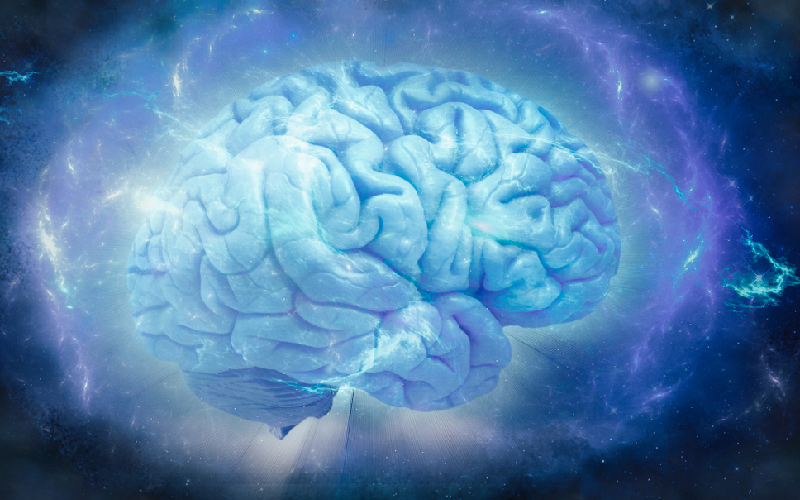
In today’s fast-paced world, the ability to think clearly, reason logically, and make decisions based on empirical evidence is more crucial than ever. Whether you’re navigating complex problems in the workplace, pursuing academic research, or simply striving for personal development, the power of sharp reasoning and scientific thinking cannot be overstated. Enter the world of nootropics — substances known for their cognitive enhancing properties.
Contents
Understanding Logic and Reasoning
Before diving into how nootropics can enhance our cognitive abilities, it’s crucial to understand the foundational elements of logic and reasoning. These mental processes are the bedrock of effective decision-making, problem-solving, and scientific analysis. Logic and reasoning allow us to make sense of the world around us, drawing conclusions from evidence and experience in a structured and meaningful way.
Definition and Importance of Logic and Reasoning
Logic is the study of correct reasoning. It’s about distinguishing good arguments from bad ones, a skill that’s invaluable in every aspect of life. Reasoning, on the other hand, is the mental process of deriving logical conclusions from premises or facts. It’s how we process information, solve problems, and make decisions. Together, logic and reasoning form the basis of all our intellectual endeavors, from everyday decisions to complex scientific research.
Types of Reasoning
To navigate through the nuances of logic and reasoning, it’s essential to recognize the different types of reasoning we employ. These types not only influence how we approach problems but also determine the strategies we might use to enhance these skills through nootropics.
Deductive Reasoning
Deductive reasoning is a logical process in which a conclusion is based on the concordance of multiple premises that are generally assumed to be true. It’s a “top-down” approach where you start with a general idea and work towards a specific conclusion. An example of deductive reasoning is if ‘All men are mortal’ and ‘Socrates is a man’, then ‘Socrates is mortal’.
Inductive Reasoning
Unlike deductive reasoning, inductive reasoning involves making generalizations based on observations. This “bottom-up” approach takes specific instances and makes a broader generalization that is considered probable, though not always certain. For instance, observing that the sun rises every morning and concluding that the sun will rise every day is an example of inductive reasoning.
Abductive Reasoning
Abductive reasoning, often referred to as inference to the best explanation, involves starting with an incomplete set of observations and proceeding to the likeliest possible explanation. It is what we often use in everyday problem-solving when we have to make a quick decision based on the best available information.
Cognitive Processes Involved in Reasoning
The act of reasoning involves a complex interplay of cognitive processes, including working memory, attention, and executive functions. These processes allow us to hold information, focus on relevant details, and manipulate data to reach conclusions. Understanding these underlying mechanisms is crucial for appreciating how nootropics can potentially enhance our reasoning abilities.
Common Barriers to Effective Reasoning
Despite our best efforts, various factors can hinder our ability to reason effectively. Cognitive biases, emotional influences, and information overload are just a few barriers that can distort our judgment and lead to flawed reasoning. Recognizing these barriers is the first step toward mitigating their effects and striving for clearer, more logical thought processes [1].

Role of Nootropics in Enhancing Logic and Reasoning
Having explored the fundamental aspects of logic and reasoning, we now turn our attention to the intriguing world of nootropics and their potential to augment these cognitive capabilities. Nootropics, often referred to as “smart drugs” or cognitive enhancers, are substances that can potentially improve mental functions such as memory, creativity, and of course, reasoning and logic. The interplay between nootropics and cognitive functions is a burgeoning area of interest, with a growing body of research indicating their potential benefits.
How Nootropics Work
Nootropics influence cognitive functions through various mechanisms. They can alter the availability of neurotransmitters, enzymes, and hormones related to cognitive processes. By modulating neural pathways, nootropics enhance communication between neurons, facilitate neurogenesis (the growth of new neurons), and aid in maintaining the health and functionality of brain cells. This can lead to improved attention, memory, and the efficiency of cognitive processes involved in logic and reasoning.
Nootropics and Neuroplasticity
Neuroplasticity, the brain’s ability to reorganize itself by forming new neural connections throughout life, is crucial for learning and adaptation. Certain nootropics have been found to promote neuroplasticity, thereby enhancing the brain’s capacity to learn, solve problems, and adapt to new information. This is particularly relevant for reasoning, as forming new connections can help in developing more nuanced and sophisticated logical structures [2].
Nootropics and Neurotransmitter Balance
The balance of neurotransmitters in the brain is essential for all cognitive processes, including reasoning and logic. Nootropics can influence the levels of key neurotransmitters such as acetylcholine, dopamine, serotonin, and glutamate, which are involved in focus, mood regulation, and executive functions. By optimizing neurotransmitter levels, nootropics can improve the clarity of thought, concentration, and the ability to process complex information, all of which are integral to effective reasoning.
Evidence-Based Benefits of Nootropics for Cognitive Function
The efficacy of nootropics in enhancing cognitive functions is supported by a growing body of scientific research. Studies have demonstrated that certain nootropics can improve aspects of cognitive function relevant to logic and reasoning, such as working memory, cognitive flexibility, and problem-solving skills. It is important to approach these findings with a critical eye, acknowledging both the potential benefits and the limitations of current research. The effectiveness of nootropics can vary greatly among individuals, and their use should be informed by the latest scientific evidence and personalized to one’s specific cognitive needs and goals.
Top Nootropics for Logic and Reasoning
With an understanding of how nootropics can potentially enhance cognitive functions related to logic and reasoning, it’s valuable to explore specific nootropics known for their effectiveness in this domain. While the effects of nootropics can vary from person to person, certain substances have garnered attention for their positive impacts on cognitive capabilities.
Racetams
The racetam family of nootropics is renowned for its cognitive-enhancing properties, particularly in the areas of memory, focus, and neuroprotection. Several members of this family have been specifically noted for their potential to enhance logic and reasoning [3].
Piracetam
Piracetam is often considered the prototypical nootropic and has been extensively studied for its cognitive-enhancing effects. It is thought to improve the efficiency of neurotransmission, particularly in systems involving acetylcholine, a neurotransmitter associated with learning and memory. Piracetam has shown potential in enhancing cognitive processing, logical thinking, and the speed of mental operations.
Aniracetam
Aniracetam is known for its anxiolytic properties and its ability to enhance cognitive function. It has been reported to improve integrated reasoning and creativity, making it a popular choice for those seeking to enhance their problem-solving abilities and innovative thinking.
Oxiracetam
Oxiracetam is considered more potent than piracetam and has been praised for its stimulatory effects. Studies suggest that it can enhance logical performance, memory, and concentration, making it particularly beneficial for tasks requiring extended periods of focus and complex reasoning.
Phenylpiracetam
Phenylpiracetam is a more potent derivative of piracetam, with added stimulatory effects. It is reported to significantly enhance cognitive function, including problem-solving abilities, attention, and motivation, which are crucial for effective reasoning and logical analysis.
Cholinergics
Cholinergics are compounds that affect the cholinergic system, which is critical for cognitive functions such as memory, attention, and learning. Two notable cholinergics are:
Alpha GPC
Alpha GPC (L-Alpha glycerylphosphorylcholine) is a choline-containing supplement that is thought to increase the availability of acetylcholine in the brain. It supports cognitive functions, including memory formation and recall, and is believed to enhance the ability to reason and process complex information.
CDP-Choline (Citicoline)
CDP-Choline, also known as citicoline, is another choline source that can significantly boost mental energy, focus, and overall brain health. It has been shown to support reasoning abilities and cognitive endurance, making it ideal for intensive intellectual work [4].
Natural Nootropics
Natural nootropics are compounds derived from plants or other natural sources that have cognitive-enhancing effects. Some notable examples include:
Bacopa Monnieri
Bacopa Monnieri is a traditional Ayurvedic herb known for its ability to improve memory and cognitive processing. It is believed to enhance logical reasoning and problem-solving skills by improving information retention and recall.
Ginkgo Biloba
Ginkgo Biloba is another herb that has been used for centuries to enhance cognitive function. It is thought to improve blood flow to the brain, thereby supporting a variety of cognitive functions, including focus, memory, and reasoning.
Lion’s Mane Mushroom
Lion’s Mane Mushroom is recognized for its potential to stimulate nerve growth factor (NGF) production, which is crucial for brain health. It has been linked with improved cognitive function, including enhanced logical reasoning and analytical thinking.
Other Supplements
In addition to the more traditional nootropics, certain other supplements have been found to support cognitive functions relevant to logic and reasoning.
Omega-3 Fatty Acids
Omega-3 fatty acids, particularly those found in fish oil, are crucial for brain health and cognitive function. They have been linked with improvements in cognitive flexibility, critical thinking, and problem-solving abilities.
L-Theanine + Caffeine
The combination of L-Theanine and caffeine is well-known for its ability to improve focus, alertness, and cognitive performance. This synergistic effect can enhance the ability to engage in sustained logical reasoning and complex problem-solving.
Mechanisms of Action and Scientific Studies Supporting Their Use
Each of these nootropics operates through unique mechanisms to influence cognitive functions. For instance, racetams may enhance neuroplasticity and neurotransmitter activity, while natural nootropics like Bacopa Monnieri and Ginkgo Biloba improve blood flow and antioxidant protection in the brain. The scientific literature provides varying degrees of support for these substances, with many studies indicating positive effects on cognitive functions including memory, focus, and, importantly for this discussion, logic and reasoning.
Selecting the right nootropic or combination of nootropics (often referred to as a “stack”) requires careful consideration of individual goals, health status, and the existing body of scientific evidence. With an informed approach, individuals can harness the potential of these substances to support and enhance their cognitive capabilities, particularly in the realms of logic and reasoning [5].

Real-World Applications and Case Studies of Enhancing Reasoning and Logic with Nootropics
The theoretical benefits of nootropics for enhancing logic and reasoning are compelling, but it is through real-world applications and case studies that we truly understand their impact. Individuals from various backgrounds, including students, professionals, and intellectuals, have turned to nootropics to enhance their cognitive capabilities.
Case Studies of Individuals Enhancing Logic and Reasoning with Nootropics
The Student Preparing for Exams
A university student facing demanding examinations began a regimen of nootropics, including Bacopa Monnieri and a racetam-based stack, to improve memory retention and enhance reasoning skills. Over several weeks, the student reported significant improvements in the ability to understand complex concepts, solve problems more efficiently, and recall information more reliably during tests.
The Professional Enhancing Work Performance
A software developer turned to nootropics, specifically a combination of L-Theanine and caffeine, along with Lion’s Mane Mushroom, to boost focus, enhance problem-solving abilities, and support creative thinking for coding and project development. The developer noted marked improvements in the ability to work through complex algorithms and maintain high levels of concentration for extended periods.
The Senior Citizen Maintaining Cognitive Health
A retired professional interested in maintaining cognitive health and enhancing reasoning abilities started supplementing with Omega-3 fatty acids and Ginkgo Biloba. Over time, they observed enhanced mental clarity, improved memory, and a heightened ability to engage in logical reasoning and critical thinking, underscoring the potential for nootropics to support cognitive health at any age.
Impact on Professional Success and Academic Performance
The integration of nootropics into daily routines has shown promising results for enhancing professional success and academic performance. Individuals report improved efficiency in problem-solving, more effective communication due to clearer thinking, and enhanced ability to learn and adapt to new information. These benefits not only contribute to individual achievement but can also foster innovation and progress in various fields.
Personal Stories of Improved Daily Problem-Solving
Beyond the realms of academia and professional life, nootropics have made a notable difference in the everyday problem-solving abilities of many individuals. For instance, parents managing busy households have found that nootropics help them juggle multiple responsibilities more effectively, while hobbyists, such as chess players and puzzle enthusiasts, report improved strategic thinking and analytical skills.
References
[1] Nootropics as Cognitive Enhancers: Types, Dosage and Side Effects of Smart Drugs
[2] cognitive enhancers nootropics
[3] What Are Nootropics? Everything You Need To Know
[4] Nootropic Herbs, Shrubs, and Trees as Potential Cognitive Enhancers
[5] Smart drugs for cognitive enhancement: ethical and pragmatic considerations in the era of cosmetic neurology
